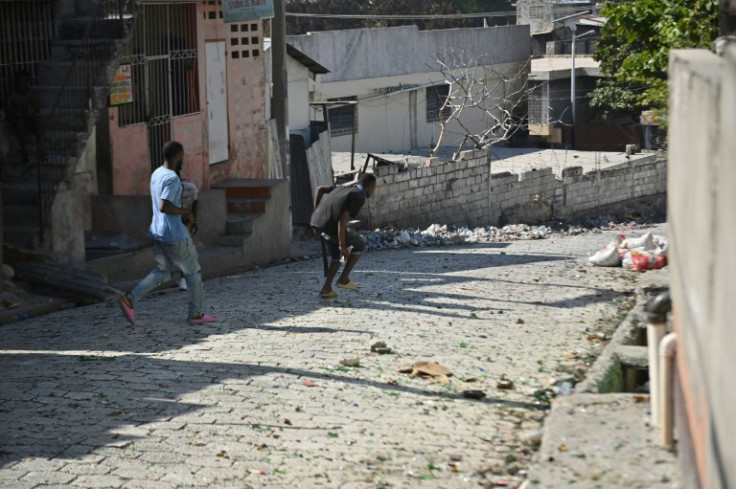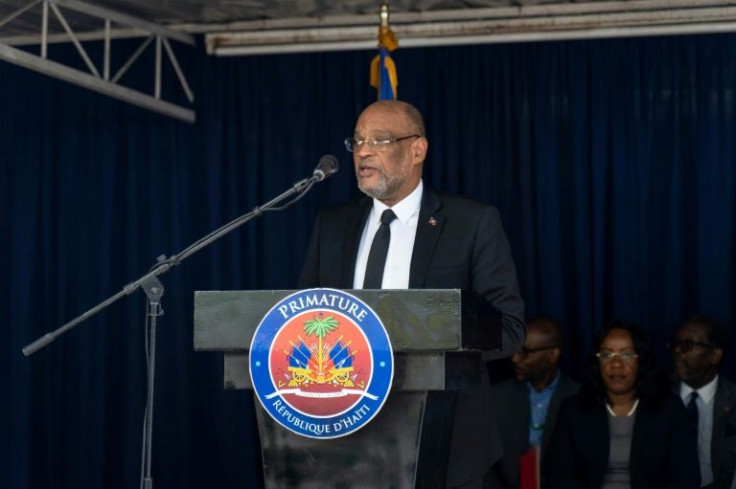
Kenya and Haiti signed a security deal on Friday aimed at salvaging the former's role in the deployment of a police force tasked with helping combat gang violence, which has taken over the country.
The Guardian reported that Kenyan president William Ruto said in a statement that he, along with Haitian Prime Minister Ariel Henry, witnessed the signing of reciprocal agreements between the countries.
It is not clear, however, whether the deal will beat a recent ruling by a Kenyan court, which deemed the deployment unconstitutional, partly due to a lack of reciprocal agreements between the countries.
Under the umbrella of the United Nations, group of countries is seeking to raise money and officers to send an international force to help fight gangs, which have taken control of large portions of the country and the capital, but have so far faced a series of obstacles, Kenya's current inability to lead the force atop of them.
Speaking at a Kenyan university, Henry shrugged when asked if it was safe for him to return to Haiti following a new surge in violence on Thursday. The question came on the heels of a warning by a powerful gang boss, Jimmy Chérizier, who said he would try to capture the country's police chief and government ministers, and prevent Henry from returning.
Gang members shot at the country's main international airport and other targets, forcing many of them to close early. "With our guns and with the Haitian people, we will free the country," said Chérizier.
Henry has said that elections are needed to bring stability to the country and pledged to do so repeatedly, but said that gang violence and generalized instability have not allowed them to do so. This week, Caribbean leaders announced this week that he has agreed to hold them by mid-2025.

The announcement took place at a four-day summit of Caribbean nations in Guyana, known as CARICOM. They said Henry agreed that there is a need to hold elections and to work with the opposition and civil society toward that goal.
"Caricom heads underlined the critical and immediate need for a clear political path forward which should be participatory and inclusive," said the group in a statement. The road will also involve the creation of an assessment team by the U.S., Canada and the United Nations to help Haiti prepare for the electoral process.
Gangs run rampant in large swaths of the country, and homicides in Haiti more than doubled last year to nearly 4,800, according to a UN report released last month.
In mid February, the United Nations' food agency, the World Food Program (WFP), said that a recent surge in violence in Haiti's capital, Port-au-Prince, is causing significant obstacles for it in delivering essential supplies to hundreds of thousands of vulnerable individuals in the country.
The statement mentioned that around 44% of citizens are facing acute food insecurity and struggle to feed their families. Even children who used to get daily hot meals in the schools are unable to get them as the schools are closed amid the latest wave of violence and unrest across the country.
Another report this month, from Global Initiative Against Transnational Organized Crime, noted that Haitian criminal gangs are becoming financially stronger as the gangs are using funds obtained through private entities, residents, and kidnapped victims to purchase weapons and pay soldiers.
© 2025 Latin Times. All rights reserved. Do not reproduce without permission.





